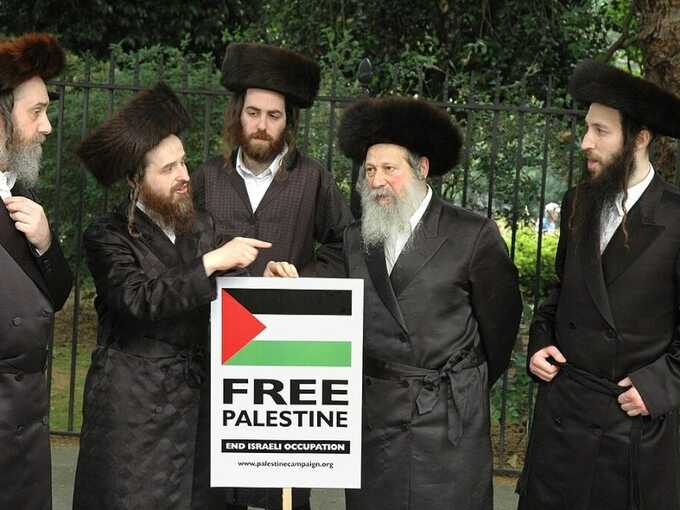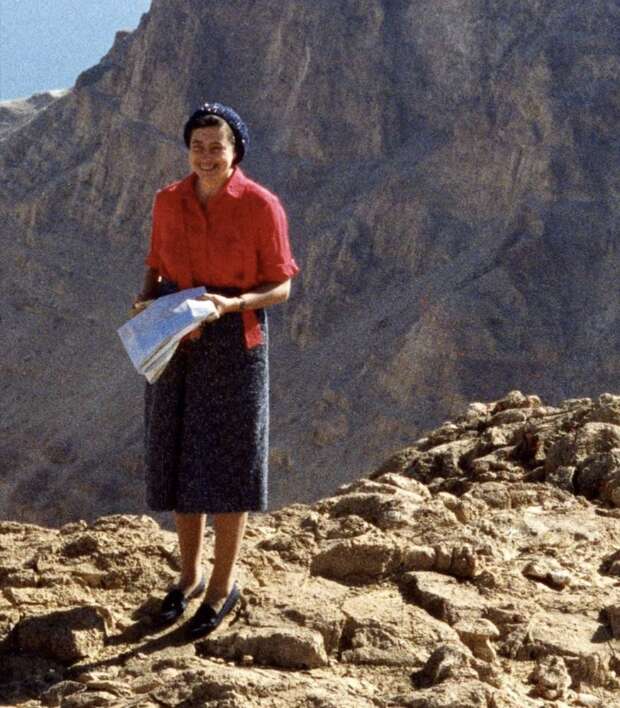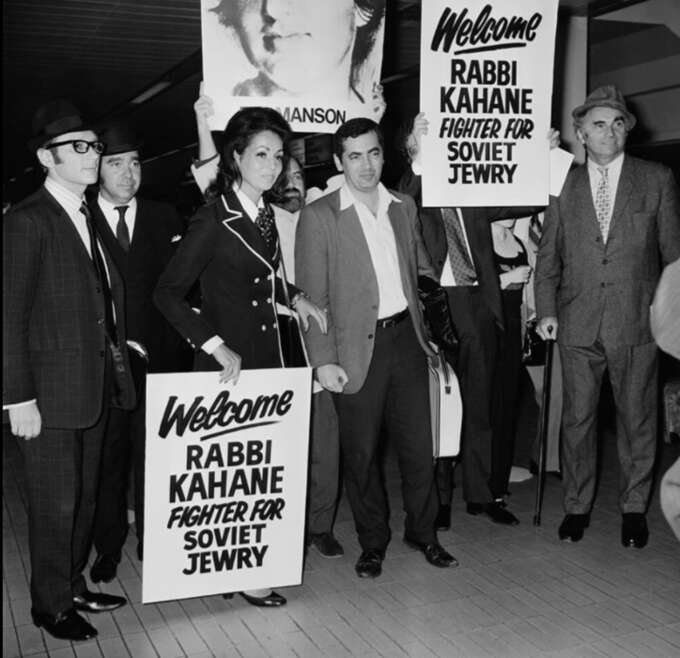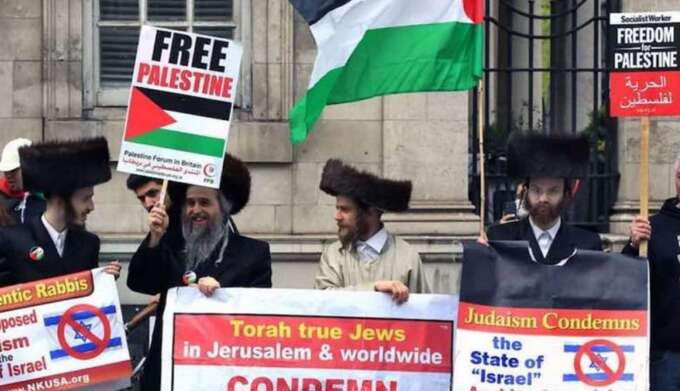Illegally promised land: how Jewish believers are divided over settlements in the Palestinian territories

The war in Gaza has reignited the debate over Jewish settlements in the Palestinian territories.
Israeli government ministers have already announced plans for expansion and the construction of new settlements, particularly in the Gaza Strip. They argue that maintaining and expanding these settlements is a religious duty. This issue is causing tension between Israeli authorities and their Western allies. Surprisingly, many Orthodox Jews oppose this policy, believing it is their religious duty to prevent such settlements.
CONTENT
-
Drawing the future
-
The legacy of Rabbi Kahane
-
Evolution of Zionism
-
Opponents of the settlements
Drawing the future
In the late 1970s, Plia Albeck, an official from the Israeli Ministry of Justice, found an old, long-forgotten document in the Jerusalem archives. As soon as she finished reading it, Plia immediately contacted the Prime Minister’s office to report that a solution to one of the main problems facing the state had been found.
For over a decade following the victory in the 1967 Six-Day War, Israel controlled not only the territories designated by the UN for the creation of a Jewish state but also additional areas not intended for Israeli control. This included primarily the Palestinian Gaza Strip and the West Bank of the Jordan river.
From the standpoint of international law, these territories were considered occupied. Under the Geneva Convention, to which Israel is a signatory, an occupying state is prohibited from transferring its own civilian population into the occupied territory. However, since the late 1960s, Jewish settlements began to appear in these areas.
Most residents of these settlements were ultra-religious Jews who believed that Israel should occupy all lands mentioned in the Torah as belonging to the Jews. They disregarded the Geneva Convention and international law in general. For devout people, this legal framework was irrelevant compared to the Holy Scripture, which does not mention Palestine at all, while the people of Israel are promised all the land from the Nile to the Euphrates.
The Israeli government did not know what to do with these settlers. Ignoring them was impossible—they were becoming more numerous and influential. Evicting them from the settlements by force would provoke a serious crisis, possibly even uprisings throughout the country, which would undoubtedly be joined by many believers who placed divine laws above any human rules.
Ignoring the settlers was also not an option. Firstly, because Israel’s foreign partners and international organizations were increasingly expressing dissatisfaction with settlement activity, which they viewed as absolutely illegal. Secondly, the settlers were Israeli citizens, and the state had obligations to them, just as the settlers had obligations to the state.
They needed state protection, necessitating the deployment of the army and police in or near the settlements. They had to pay taxes, requiring at least their farms and workshops on land not recognized by the international community as Israeli to be legalized. Their children needed schools, and the elderly required pensions. Ideally, there needed to be a legal justification—however vague and ambiguous—for these people’s presence on lands outside Israel’s internationally recognized borders. Plia Albeck found this justification.
Ideally, there needed to be a legal justification for these people’s presence on lands outside Israel’s internationally recognized borders
In her hands were documents detailing the land laws of the Ottoman Empire, which had ruled the Holy Land for four centuries. Among these yellowed pages, there were a few words allowing the confiscation of lands from owners if they did not cultivate them. This applied not to all lands, but only those situated “within a rifle shot” of the house on the edge of the nearest village.
The document, dating back to 1858 and originating from a state that ceased to exist several decades ago, was nevertheless utilized. Equipped with maps and cadastral plans, Plia Albeck traveled by jeep and flew by helicopter over nearly the entire West Bank. Her years of work resulted in the legalization of approximately one hundred Jewish settlements.

Plia Albeck was called “the mother of all settlements”
From the Israeli state’s perspective, these settlements were on no-man’s land, which former Arab owners had lost on completely legal grounds. From the settlers’ perspective, only Jews could legitimately own this land according to both divine and human laws. They saw no need to invent rules or seek out foreign laws that were scarcely applicable to Israeli realities when the Bible clearly and unequivocally granted a significant portion of the Middle East to the Jews in perpetuity. The ideology that unites these people is known as religious Zionism. A religious Zionist’s duty is to extend Israeli presence over all Old Testament Jewish territories.
The duty of a religious Zionist: spread Israeli presence over all Old Testament Jewish territories
The legacy of Rabbi Kahane
“Every Jew should have a .22 caliber rifle,” was the most famous saying of one of the modern religious Zionism ideologues, Rabbi Meir Kahane. He was born and raised in the USA, where in the late 1960s he founded the “Jewish Defense League.”
Initially, the League protected Jewish homes and stores in Brooklyn from raiders and anti-Semites, but soon shifted to more global tasks. Members of the organization demanded that the Soviet government allow Jewish emigration, and when Moscow ignored these demands, they resorted to acts of intimidation. Kahane’s followers poured blood on Soviet diplomats, set off smoke bombs at a concert by a Soviet orchestra in New York, and planted explosives at the U.S.office of “Aeroflot” and the USSR cultural center.

In 1970, Kahane’s people disrupted a concert of the Moscow Philharmonic Orchestra (Mehir Kahane – center)
In the early 1970s, League militants attacked diplomatic missions of countries that voted in the UN for resolutions condemning Israel, and even Jewish charitable foundations they deemed ineffective.
League militants even attacked Jewish charitable foundations they deemed ineffective
Some of these actions were planned and carried out without Kahane’s involvement. In 1971, he emigrated to Israel immediately after being convicted in the U.S. of illegal bomb-making. In Israel, the rabbi founded the “Kach” political party, whose central agenda included annexing all territories occupied by Israel (Gaza Strip, West Bank, Sinai Peninsula, and Golan Heights) and deporting all disloyal Arab populations from there. To implement this program, he proposed to arm Jews with rifles.
The party had minimal voter support and remained on the fringes until Israel signed a peace treaty with Egypt and agreed to return the Sinai Peninsula, which it had occupied in 1967. Although the decision to return it was made in 1979, the region was handed over in parts.
The final part, one nearest to Israel, was handed over in 1982. Several thousand Israeli settlers resided there, with some of them adamantly opposed to relinquishing the land they had inhabited to Egypt and steadfastly refusing to vacate.
These people barricaded themselves in their homes and vowed to commit mass suicide rather than leave Sinai. Many were affiliated with the religious movement Gush Emunim (“Bloc of the Faithful”), which united believers in the divine determination of Israel’s borders. According to their ideology, if God had bestowed Sinai upon the Jews, it was His will, and people should not oppose it. These people were also religious Zionists.
Evolution of Zionism
The first Zionists, starting with the movement’s founder Theodor Herzl, were mostly secular people. They did not plan to build a state strictly according to the Torah. Moreover, among them were people who did not consider it essential to establish it in the Holy Land. They proposed founding a new Israel, for example, in South America or East Africa.
However, religious Zionists have asserted and still assert that the Jewish state should be established where it originated millennia ago, with its laws rooted in biblical texts, and that any democratic principles conflicting with this should be disregarded.
This belief was shared by Meir Kahane and the settlers in Sinai. When the settlers threatened mass suicide, Kahane intervened to dissuade them from such drastic measures. He proposed political action—participation in elections, mobilizing voters and garnering their support. Remarkably, this approach proved successful.
Kahane proposed political action—participation in elections, mobilizing voters and garnering their support. Remarkably, this approach proved successful
The settlers ceased their resistance and returned to Israel, and in the first elections following the transfer of Sinai, the Kach party secured its inaugural entry into the Knesset. Kahane strategically utilized democratic institutions while openly expressing disdain for democracy itself. He deemed it incompatible with Zionism due to its provision of voting rights to non-Jews in Israel, a sentiment he publicly voiced. Ultimately, this stance led to the revocation of his parliamentary mandate. In the late 1980s, new criteria were instituted for political parties, barring those that denied Israel’s democratic nature from participating in parliamentary elections.
Kach was simply excluded from the 1988 elections. Two years later, Meir Kahane was assassinated by a lone terrorist. In 1994, Kahane’s followers themselves turned to terrorism. This followed former Kach candidate Baruch Goldstein’s massacre of 29 Palestinian Muslims in a mosque in Hebron, which left over a hundred wounded before Goldstein was killed by Palestinians while attempting to reload his rifle.
Goldstein became a symbol for ultra-right Israelis, and both Kach and its equally radical splinter group “Kahane Chai,”which emerged following the founder’s death, were outlawed as extremist organizations.
These parties popularized the term “Kahanism,” which characterizes the extreme right-wing religious Zionist ideology and several political factions aligned with it.
For many years, these parties and factions occupied a niche, appealing primarily to religious Zionists, including Jewish settlers. Their popularity fluctuated, peaking, for example, in 2005 when Ariel Sharon’s government unilaterally evacuatedall settlements from the Gaza Strip, provoking widespread discontent among Israel’s religious population. However, Zionists never garnered the level of support enjoyed by mainstream parties, so they mostly remained in opposition.
However, in 2022, following the collapse of yet another ruling coalition, former Prime Minister and Likud party leader Benjamin Netanyahu sought to reclaim the premiership by rallying around him all political factions willing to collaborate. Among them were two religiously oriented ultra-right parties: the Religious Zionist Party led by Bezalel Smotrich and Jewish Power led by Itamar Ben-Gvir.
Interestingly, just weeks before forming the coalition in late December 2022, Netanyahu declined to share a stage at a campaign rally with Ben-Gvir. He likely feared that being seen alongside a politician convicted of making racist remarks and known for displaying a portrait of Baruch Goldstein in his home for many years would deter more moderate voters.

Benjamin Netanyahu and Itamar Ben-Gvir
However, Ben-Gvir has now become a close ally of Netanyahu, holding the crucial position of Minister of National Security, overseeing the police, rescue services, and border guards. Given the ongoing conflict in the Gaza Strip and the heightened threat of terrorist attacks, this ministry has gained significant importance in Israel. Another key government position is held by his ideological counterpart, Bezalel Smotrich, who serves as Minister of Finance.
Despite their elevated roles, Smotrich and Ben-Gvir have not abandoned their radical ideologies. Both ministers advocate not only for maintaining existing Jewish settlements in the Palestinian territories but also for establishing new ones, including in the Gaza Strip.
Both ministers advocate not only for maintaining existing Jewish settlements in the Palestinian territories but also for establishing new ones, including in the Gaza Strip
Ben-Gvir contends that the withdrawal of settlements and the subsequent lack of military protection were among the main factors leading to the Hamas massacre on October 7, 2022. He argues for direct military control over the region, encouraging a significant portion of the Arab population to emigrate from Gaza (suggesting negotiations with Israel’s Arab neighbors to accept refugees), and resettling Jews in place of those who leave.
“It’s ethical! It’s rational! It’s right! It’s the truth, the Torah teaches this, and it’s the only way,” Itamar Ben-Gvir declaredin a recent interview.
Opponents of the settlements
Ben-Gvir and Smotrich’s supporters are ultra-religious Jews who firmly believe that the borders of Israel should be exclusively determined by God. However, the ultra-religious community is not homogenous. Within this group, there are people who hold the belief that when God expelled the Jews from the Holy Land under Roman rule two thousand years ago, it was a divine punishment for neglecting commandments and succumbing to arrogance. They maintain that the restoration of Israel’s former glory will only occur upon the arrival of the Messiah, as promised in sacred texts. It is the Messiah who is anticipated to restore Israel to its former greatness. These believers view the current state of Israel, where secular laws coexist with religious principles, as at least partially incorrect.
There are those who hold the belief that when God expelled the Jews from the Holy Land, it was a divine punishment for neglecting commandments and succumbing to arrogance
The most prominent faction among such believers consists of followers of the Hasidic movement Satmar, whose headquarters are now located in the United States. The Satmar Hasidim number approximately one hundred thousand, with many being descendants of Holocaust survivors from Eastern Europe. Despite often obtaining Israeli citizenship and relocating to the Middle East, adherents of this movement do not regard modern Israel as the rightful inheritor of the biblical Holy Land.
They speak Yiddish instead of Hebrew, call themselves anti-Zionists, criticize religious parties for cooperating with secular politicians, urge believers not to serve in the Israeli army, and oppose Israeli settlement activity. The current head of the movement, Rabbi Aaron Teitelbaum, believes that the existence of Jewish settlements on territories considered Palestinian by the world leads to a rise in anti-Semitism and provokes violence.
The Satmar Hasidim would be considered the primary adversaries of religious Zionists within the Jewish community if it weren’t for the presence of the Neturei Karta sect, also known as the “Guardians of the City.” This movement, consisting of approximately five thousand followers worldwide, not only opposes Zionism but actively campaigns against the existence of Israel itself. They openly advocate for the dissolution of Israel and the transfer of all Israeli territories to the Palestinians. Members of the sect typically attire themselves in traditional Hasidic garb, including black frock coats and hats, and drape scarves in the colors of the Palestinian flag over their shoulders.

According to the religious tenets of Neturei Karta, Jews are prohibited from independently establishing a national state without clear divine intervention, and they are even forbidden from praying for its speedy emergence. In their perspective, Jews are still unworthy in the eyes of God and have not yet earned the right to possess their own state. Consequently, the existence of modern Israel is perceived by them as a grave blasphemy and a direct contravention of the divine will.
Their hatred towards Israel is so intense that Iranian leaders, who similarly reject Israel’s legitimacy, view members of Neturei Karta as allies. Followers of this movement are often invited to Tehran to participate in Holocaust denialconferences and protests at Israeli embassies in Western nations.
The common thread between Neturei Karta and their adversaries among radical religious Zionists, aside from a fear of divine retribution, is a deep-seated mistrust of democratic institutions. Rabbi Kahane, as a religious Zionist, harbored disdain for democracy due to its recognition of Arab rights and its perceived incongruence with strict religious Jewish principles. Rabbi Dovid Weiss of Neturei Karta, an anti-Zionist figure, echoes the sentiments of his ideological counterpart almost word for word, with the exception of omitting references to Arabs: “They claim to be a democracy. They boast of their secularism. They host gay pride parades in the heart of Jerusalem. They disregard kosher dietary laws. But Judaism is not democracy. It is a religion.”
Read more similar news:
Comments:
comments powered by Disqus

































